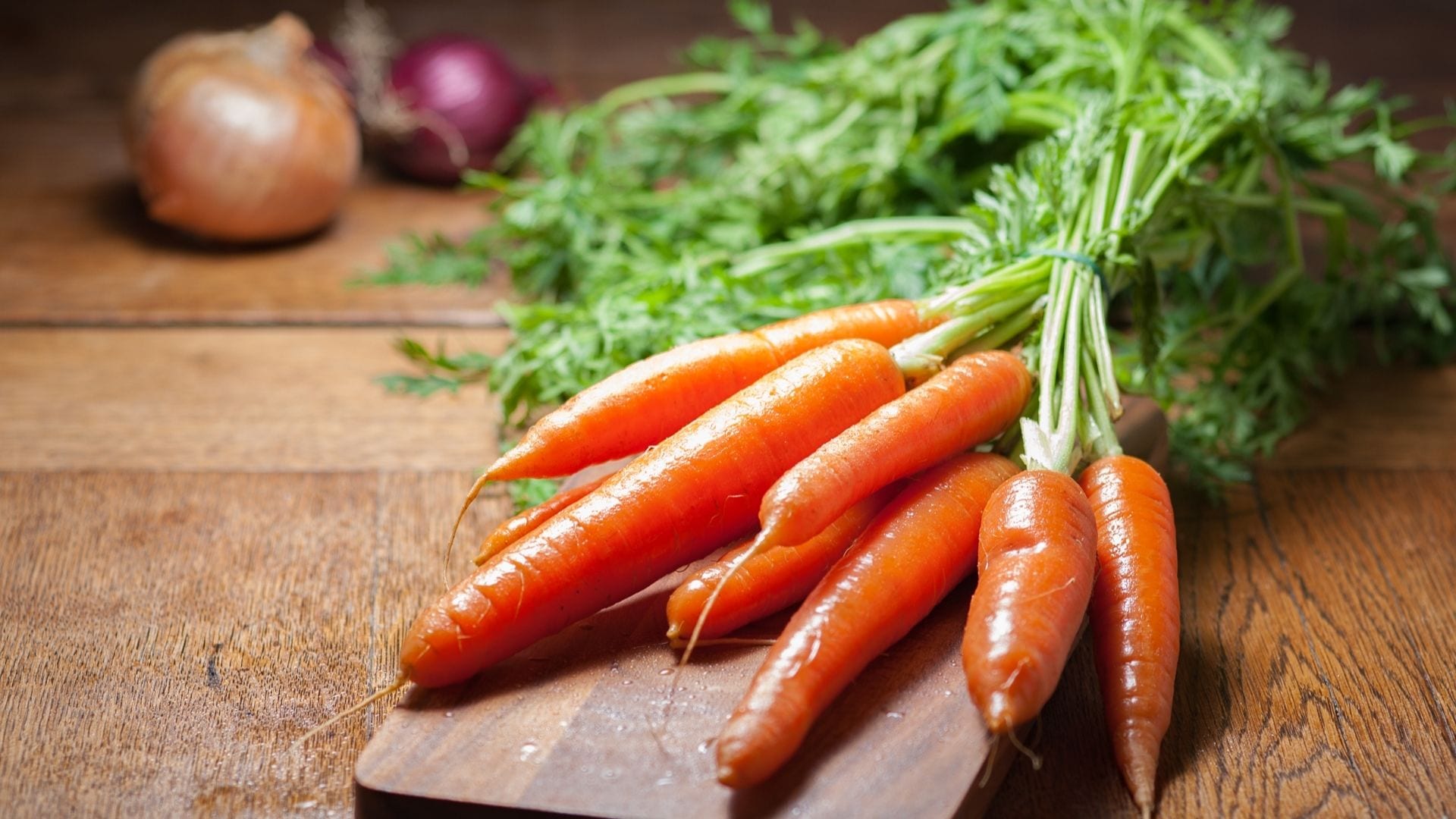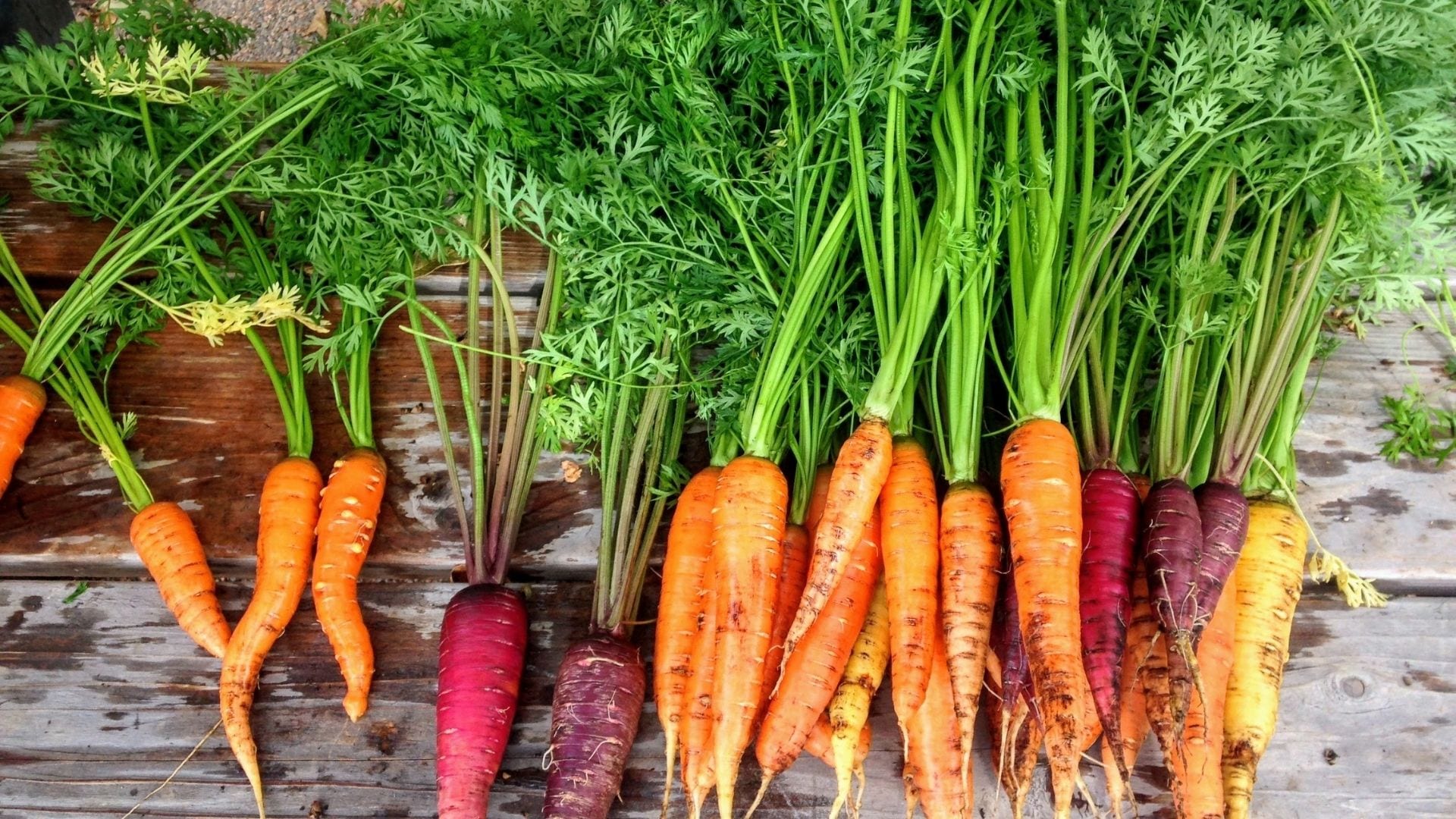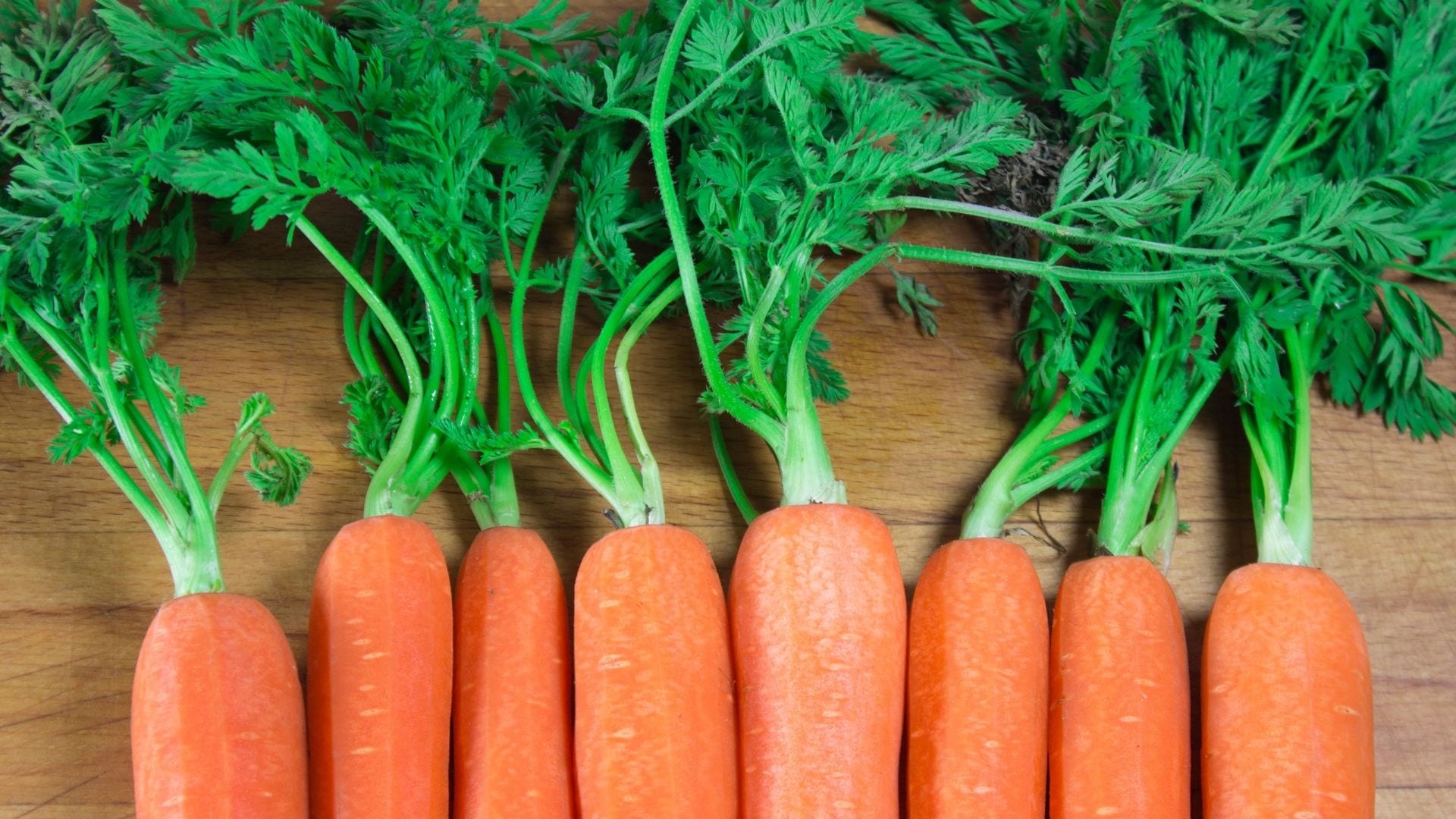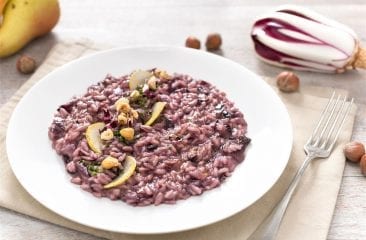To find out if carrots really are beneficial for your eyesight, as well as other secrets this crunchy root vegetable has buried in the garden, read on.

“Carrots are good for your eyes.” Probably everyone heard this sentence when they were growing up. But is it just another meaningless morsel of wisdom passed down from one generation to the next? Can we really affect our eyesight by eating carrots regularly, or is it just one of many nutrition myths? To find out everything there is to know about the rabbit’s favourite repast, read on.
Carrots owe their good reputation to the fact that they contain beta-carotene, which is responsible not only for any number of great health benefits but also for the unmistakable orange colour of the root vegetable. In addition to beta-carotene, carrots also contain many other substances of note such as vitamin B1, vitamin B6, potassium and plenty of fibre. The colourful vegetable is also very low in calories and should therefore not be missing from any balanced diet.
Eagle eyes thanks to carrots?
There is indeed a kernel of truth to the well-known myth that carrots are good for the eyes. The beta-carotene contained in carrots is the precursor to vitamin A, which our eyes do in fact need. Vitamin A, also called retinol, helps the eye to convert incoming light into a signal, which is then transmitted to the brain. Thus, it enables us to see in low light conditions. So if a person does not consume enough vitamin A, it can lead to night blindness. Retinol is also essential for the eye’s retina.
However, those visual impairments which are common in Western countries often have completely different causes than a vitamin A deficiency. Long-sightedness and short-sightedness, for example, are often a result of genetic or age-related factors and cannot be cured by the regular consumption of carrots. In developing countries in which the population is generally undernourished, vitamin A deficiency is common and can be the cause of vision problems. There, beta-carotene is the only source of vitamin A, whereas in Western countries only about 30% of retinol comes from beta-carotene. However, even in those countries, infants, seniors and children show a risk of inadequate vitamin A supply.
Carrots, however, are not the only foodstuff that contain considerable amounts of beta-carotene. In fact, green vegetables such as spinach, kale or broccoli should be regular additions to mealtimes. We don’t expect beta-carotene from these vegetables because they aren’t orange, but appearances can be deceiving. Many of them even contain additional lutein, a substance that is said to have a positive effect on the retina. Animal products, such as liver, are even richer. These contain not only beta-carotene, but also vitamin A itself.

The optimal absorption of beta-carotene
Beta-carotene is fat-soluble. This means that in its purest state, the body cannot very easily dissolve and absorb the substance from plant cells. The solution: Just eat carrots with a little fat or oil. This allows the body to absorb the beta-carotene and convert it to retinol. But be careful: As delicious as crunchy carrots are, more is not always better. Unlike water-soluble vitamins, the body does not simply excrete vitamin A when it overdoses, instead it accumulates it. This can cause headaches or nausea. If the excess occurs over a longer period of time, you may even see signs of liver damage.
Insider tip: young skin
Beta-carotene from carrots is not only important for our internal organs, your skin also benefits from it. Once beta-carotene has been converted into vitamin A, it ensures better cell growth, a stronger immune system and extra protection for your skin and mucous membranes. Beta-carotene also has an antioxidant effect and thus helps protect against UV rays, making us less prone to sunburn. It can also lower the risk of developing skin cancer.
The right storage
If you want to stock up on carrots, proper storage is a must. This is not so easy with carrots, as they quickly lose their crunchiness. Thanks to BioFresh technology, however, you can enjoy your healthy vegetables for a long time. They can be stored for up to two months. Before the vegetables go into your Liebherr refrigerator, you should remove the green parts of the carrots if possible. If the veggies are also in plastic packaging, it’s also a good idea to remove this too. Otherwise, the carrots will start to sweat and rot prematurely. If you have too many carrots, you can also blanch them – then they can easily be frozen for up to 12 months.
Carrots are not a miracle cure for any eye disease, but there is some truth to the myth. No matter what, they certainly are a healthy and delicious vegetable.

#myth, #carrots, #rootvegetables, #vision, #sightloss, #eyes, #healthy, #vitaminA, #retinol, #skin, #skincare, #betacarotene, #fatsoluble, #nightblindness, #sight, #orange


